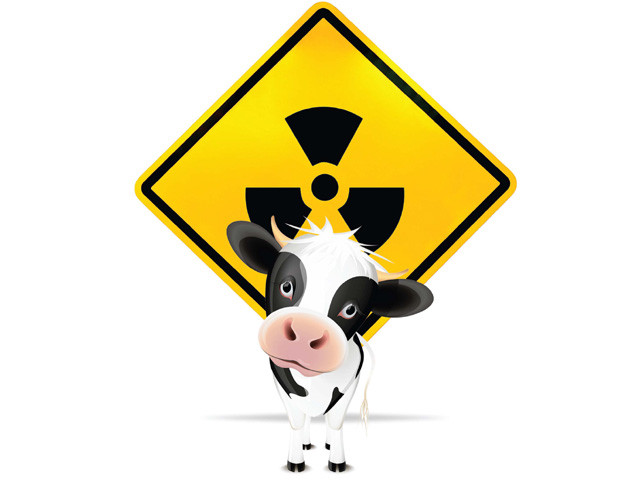Sacrificial animals may carry Congo virus
Health experts warn that if preventive measures are not put in place, Congo fever could become a grave concern.

Sacrificial animals may carry Congo virus
Congo fever is a tick-borne viral disease found among domestic and wild animals that can also be transmitted to humans.
Dr Niamatullah, head of the Veterinary Sciences department, Arid Agriculture University, Rawalpindi, said cows, bulls, goats and other sacrificial animals coming from Khyber-Pakhtunkhwa and Gilgit- Baltistan have more chances of carrying ticks on them.
In order to avoid the outbreak of Congo fever, there was a dire need to create awareness among people visiting animal markets, said Dr Sharif Astori, spokesperson Polyclinic Hospital. “The government should set veterinary camps in every sacrificial market to examine the animals and educate the buyers, as well as put up posters and give out flyers with precautionary measures at commercial hubs,” Astori said.
Dr Niamatullah said while purchasing a sacrificial animal, it is not difficult for a common man to diagnose whether it is infected, as majority of the ticks are easily visible. Besides this, the animal should not look dull or have red eyes, or suffer from flu or coughing.
The animals should also be vaccinated with an injection called Ivermectin, the doctor said. He also stressed the need to create awareness among people who handle the leftovers of the animals, particularly the hide.
On the other hand, rejecting the possibility of an outbreak, Khurshid Qureshi, president Jamiat Al-Qureshi Meat Welfare Association and Director Livestock and Dairy Development Board, said no Congo virus existed in Pakistan.
“To date, none of the butchers or workers at slaughterhouses across the country have complained about Congo virus even after handling animals everyday,” he said.
Meanwhile, doctors of the major government hospitals of the twin cities, including Polyclinic, Benazir Bhutto Hospital and Pakistan Institute of Management Sciences said they were on high alert in order to meet any untoward situation with regards to Congo fever.
They said isolation wards had already been established during the recent outbreak of dengue fever. Talking to The Express Tribune, a senior official in the Ministry of Health said this was the first time that the government was preparing for the disease before its outbreak. He said the current dengue fever outbreak is the best example of their lethargy.
Dr Khalid Randhawa, district officer health department Rawalpindi said they had a meeting with the livestock department recently in which it was discussed that all sacrificial animals coming to urban areas would be vaccinated and their movement restricted till specific areas were marked for them.
Published in The Express Tribune, November 7th, 2010.



















COMMENTS
Comments are moderated and generally will be posted if they are on-topic and not abusive.
For more information, please see our Comments FAQ